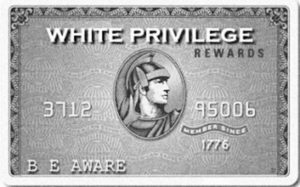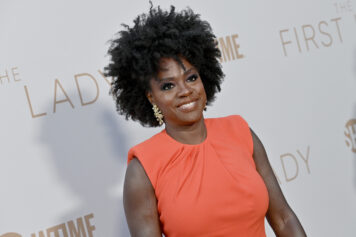Viola Davis’ Emmy Award Win Shows That ‘White Tears’ Are a Manifestation of White Privilege and Entitlement
White Privilege Causes Actress to Shed ‘White Tears’ Following Viola Davis’ Emmy Win
White Actress Sheds ‘White Tears” in the Face of Black Excellence as Viola Davis Wins an Emmy Award
“White tears” is a new phenomenon that has come to light with Viola Davis’ glorious win at the Emmy Awards, and the racist reaction of one white actress to Black success that night.
Although the term “white tears” is relatively new, the sentiment reflects an old phenomenon. Damon Young at The Root described it as “what happens when certain types of white people either complain about a nonexistent racial injustice or are upset by a nonwhite person’s success at the supposed expense of a white person.”
“It encompasses (and makes fun of) the performative struggle to acknowledge the existence of white privilege, and the reality that it ain’t always gonna go unchecked,” he continues.
“White tears” reflects disrespect and anger, passive-aggressiveness and backhanded comments–and plain hating–in the way that white folks can’t stand to see Serena Williams win a tennis match. “White tears” are shed when a Black president succeeds, at anything, though his mere existence is sufficient.
Nancy Lee Grahn of the soap opera, General Hospital, participated in a white riot over social media in response to Davis becoming the first Black woman to win an Emmy for a leading role in a drama. In her acceptance speech, Davis invoked Harriett Tubman, and noted that more Black actresses have not won Emmys because the opportunities were not there.
Grahn reacted by tweeting, “Im a [f–king] actress for 40 yrs. None of us get respect or opportunity we deserve. Emmys not venue 4 racial opportunity. ALL women belittled.”
I wish I loved #ViolaDavis Speech, but I thought she should have let @shondarhimes write it. #Emmys
— Nancy Lee Grahn (@NancyLeeGrahn) September 21, 2015
Viola Davis winning lead actress Emmy’s historic. My upset is acting awards dont fix racial injustice. As an actor I see how irrelevant we r
— Nancy Lee Grahn (@NancyLeeGrahn) September 21, 2015
Grahn then apologized for her comments, in a way, making a bad situation even worse:
I apologize for my earlier tweets and now realize I need to check my own privilege. My intention was not to (cont) http://t.co/uyre6WPeeH
— Nancy Lee Grahn (@NancyLeeGrahn) September 21, 2015
I never mean to diminish her accomplishment. I wish I could get her roles. She is a goddess. I want equality 4 ALL women, not just actors.
— Nancy Lee Grahn (@NancyLeeGrahn) September 21, 2015
I’ve taking a whoopin 2night and as u can see will rightfully stay up all night to talk to you.
— Nancy Lee Grahn (@NancyLeeGrahn) September 21, 2015
30 yrs an advocate 4 human rights & now i’m a racist. Color me heartbroken. Twitter can bring out the best & sadly tonight the worst of us.
— Nancy Lee Grahn (@NancyLeeGrahn) September 21, 2015
“White tears” are the attempt by white America to rain on Black folks’ parade, to put their feet down and proclaim that white people deserve all the accolades, all the awards, and all the recognition. When they do not receive it–in a society that normalizes the notion of white privilege and Black inferiority–something must be wrong. When white folks don’t win, they believe it is an injustice, because they cannot conceive of a Black person deserving anything over them, even as we work twice as hard to get half as much.
A close relative of white tears is white fragility, which Robin DiAngelo described in the International Journal of Critical Pedagogy in 2011 as “a state in which even a minimum amount of racial stress becomes intolerable, triggering a range of defensive moves. ”
She continued, “These moves include the outward display of emotions such as anger, fear, and guilt, and behaviors such as argumentation, silence, and leaving the stress-inducing situation. These behaviors, in turn, function to reinstate white racial equilibrium.”
In DiAngelo’s view, white Americans live in environment in which they are protected from race-based stress, and have a low threshold when it comes to enduring any challenges to their racial worldview.
As white America collectively continues to mourn the loss of the good old days when they had it all, expect more white tears.



